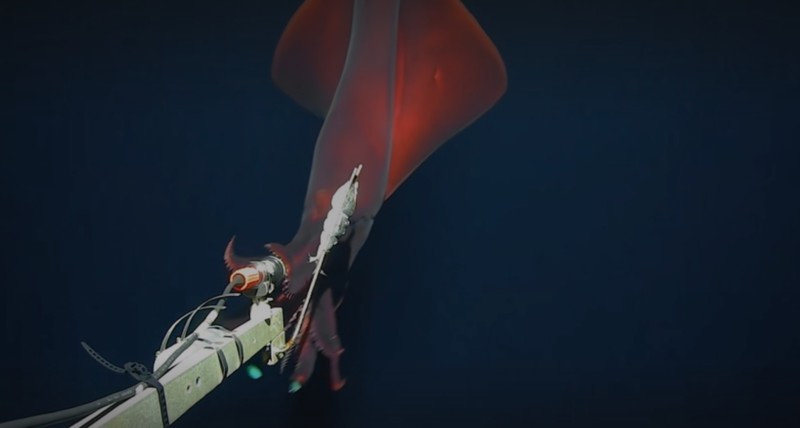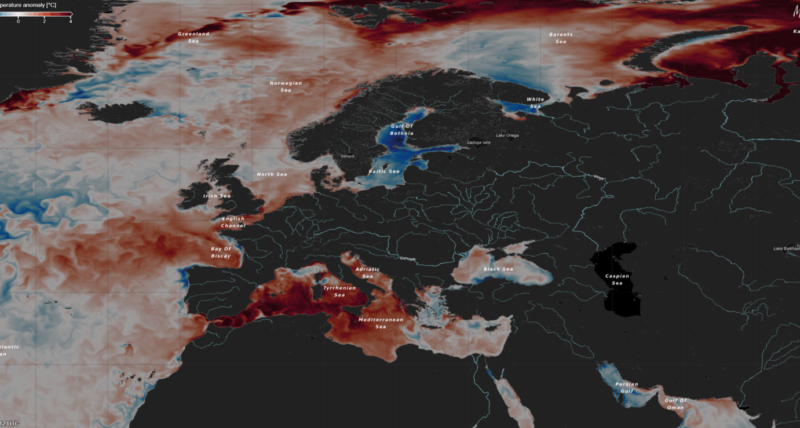While the “Arctic, Antarctic, TAAF and deep ocean floor study group” meets on Wednesday March 20 at the National Assembly, Geneviève Pons and Pascal Lamy, vice-presidents of the Europe Jacques-Delors think tank, warn, in a column in “World”, on the crises that threaten Antarctica and the Southern Ocean, and call for taking the full measure of their ecological and economic impact on our societies.
By challenging us about the awakening of the climate crisis from the Antarctic Peninsula in November 2023, the UN Secretary General launched an appeal to our collective conscience. The consequences of the melting ice on the Antarctic continental shelf will go far beyond the borders of this inhospitable continent: because the economic and human repercussions will be massive and likely to affect millions of lives during this century, it is a question of a global alert.
A few weeks later, the French ambassador for the poles and maritime issues, Olivier Poivre d’Arvor, in turn spoke in an article about the transformation of the poles into “real climate bombs” (Le Monde, February 2).
The ecological implications of the climate crisis in Antarctica are multiple and obvious. For example, the disappearance of the ice threatens the very existence of emperor penguins, an emblematic species of Antarctica. In addition, the spread of avian flu, already present in the West Antarctic Peninsula, now appears to be a new threat, likely to decimate many animal species.
Loss of biodiversity
But these implications are also economic: Antarctic krill, fundamental to the oceanic food chain, is not only threatened by overfishing, but also by climate disruption. This loss of marine biodiversity could have devastating repercussions on fishing industries on a global scale, all of which depend, more or less directly, on this species.
Article reserved for our a
Even more alarming is the extremely rapid melting of ice on the Antarctic continental shelf, which represents 90% of the cryosphere [that is to say all the masses of ice, snow and frozen ground present on Earth ]. This melting contributes significantly and rapidly to rising sea levels, exposing nearly a billion people to coastal retreat by 2050.
At the same time, polar tourism is growing exponentially, attracting visitors eager to discover this still pristine continent before it is too late. This poorly regulated tourism generates additional environmental damage and increases pressure on a region that is already too vulnerable.
Despite the accumulation of scientific reports, understanding of the crucial role of the Southern Ocean and its biodiversity in climate regulation remains insufficient. The Southern Ocean acts as a thermostat, absorbing excess heat and ensuring the proper functioning of ocean currents, supporting marine life and regulating the global climate. Its preservation is essential to maintain the planet’s climatic balance. Optimizing the management of krill fishing Faced with these observations, an obvious solution is essential: that of protecting the Southern Ocean. This project, supported for years by the Antarctic and Southern Ocean Coalition (ASOC) and Antarctica2030 and validated by the scientific committee of the Convention on the Conservation of Antarctic Marine Living Resources (CCAMLR), is now within reach.
Starting this summer, CCAMLR will have a unique opportunity to make significant progress in optimizing the management of krill fisheries and the protection of the Antarctic Peninsula. Also read the article: “Protecting the Antarctic environment means protecting the future of the planet” By establishing a network of marine protected areas in the Southern Ocean, CCAMLR would display its leadership in protecting the ‘ocean. But it would also mark a major step forward towards achieving the objective of protecting 30% of the ocean by 2030, as set out in the Kunming-Montreal global framework for biodiversity. By aligning its initiative with this legally binding objective, CCAMLR would achieve a first tangible victory in the preservation of marine ecosystems, paving the way for similar initiatives across the world. It is therefore crucial that world leaders recognize the urgency of this situation and act accordingly.
The European Union (EU), strong on its environmental heritage carried by Jacques Delors (1925-2023), who made it an essential component of sustainable development, must play a leading role in this enterprise. By advocating for the creation of these Antarctic marine protected areas, the EU can significantly contribute to the preservation of this vital ecosystem. Also read the article: “We must move away from fossil fuels as quickly as possible to protect the polar regions” The time has come to act decisively to protect the waters of Antarctica. Beyond the ecological implications, it is indeed our responsibility towards future generations and the entire planet that is at stake. Geneviève Pons and Pascal Lamy are vice-presidents of the Europe Jacques-Delors think tank and co-presidents of the association Antarctica2030. Geneviève Pons (Vice-President of the Europe Jacques-Delors think tank) and Pascal Lamy (Vice-President of the Europe Jacques-Delors think tank).




